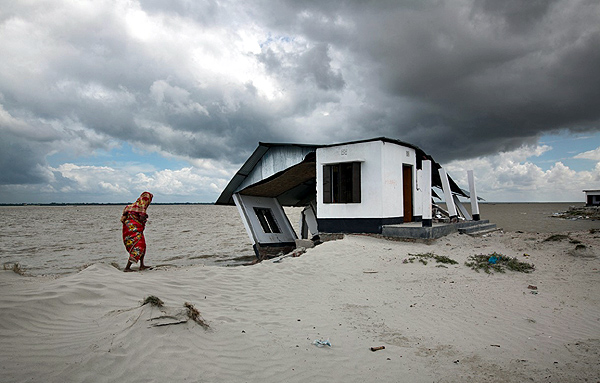 ABC’s David Muir, the anchor for the most watched evening television network news show in America, is reporting how the climate disaster in Madagascar is causing a devastating famine.
ABC’s David Muir, the anchor for the most watched evening television network news show in America, is reporting how the climate disaster in Madagascar is causing a devastating famine.
What I’ve seen so far is accurate. Muir represents that unique type of reporter who is concerned with the brain in his head rather than the hairdo on it, which is the case with most of his ABC colleagues. But the heart-wrenching story he’s reporting is most important for what Muir seems unable to tell.
In a nutshell Muir shows how the five-year drought in southern Mozambique is killing people, traumatizing children and straining international relief.
It’s by far not the only region in the world, indeed even in Africa, currently suffering so horrifically from climate change. But the value of bringing at least one of these stories into the living rooms of the privileged can’t be overstated.
Inured even to our own sufferings, divided America is hardly screaming to learn of more misery. I’m sure that in today’s news rooms conversations are heated over whether to air the type of reporting Muir is doing. The antagonists have a point, too: Too much of the same message does little more than anesthetize the viewer.
So wrapped into the climate summit now ongoing Muir is making a heroic effort to turn a weighty political topic into a human news story.
And it’s more than a fair job, so what’s the problem?
The series began with references to Madagascar’s five-year drought with an emphasis that a drought of that length is almost apocalyptic. And so it is, in Madagascar. But what about California? Didn’t large parts of agricultural California suffer a seven-year drought?
That’s the problem. The western world refuses to see the developing world in its own image but rather as something an arm’s length away, totally different, no more deserving of misery than any other place on earth, but so … what shall we say, backwards? – that we should probably expect every crisis to become apocalyptic.
Muir commendably wants us to become more empathetic to Africans, more likely to give more aid, more ready to help more.
But in refusing to contrast what a five-year drought in the developing world means vis-a-vis a seven-year drought in the developed world, a massive understanding is lost.
Obviously the under privileged will always suffer more than the privileged from unplanned, unintended reversals, whether that be economic or climate.
But ignoring that stark differential, Mozambicans dying while California’s surf, ignores the more important story as to why Mozambique is in its situation instead of California’s.
So that if inshallah the world ultimately manages climate change it won’t only be for the privileged, and that the stage won’t be unchanged for the next disaster.
Mozambique is particularly cogent to this discussion. I’m not suggesting only that slavery and colonization set the stage, as climate might now, for the certain future misery of Mozambique. Rather just the last few decades of the developed world’s exploitation of this remote region of Africa meant that endless war was unstopped.
War that couldn’t have happened without the sale of bombs and materials from factories in Washington.
So that even the little resources that were available that might have helped to battle some locusts or typhoons instead were spent in destruction manifest by the factories of the west.
Oh, something else. Where is the developed world’s promised $100 billion/annually to help the developing world transit from fossil fuels?
In the banks of munition manufacturers?